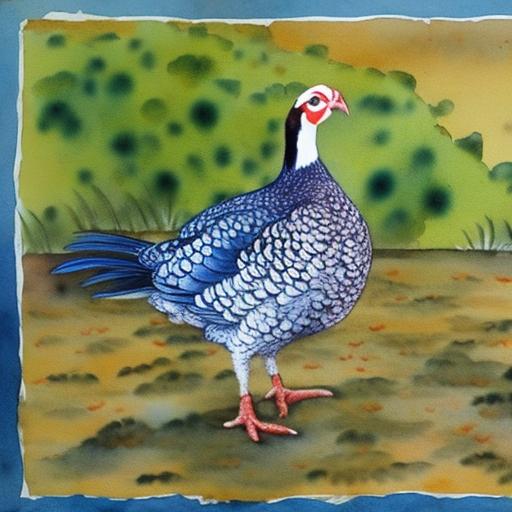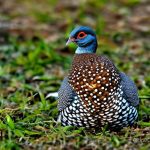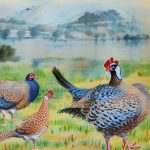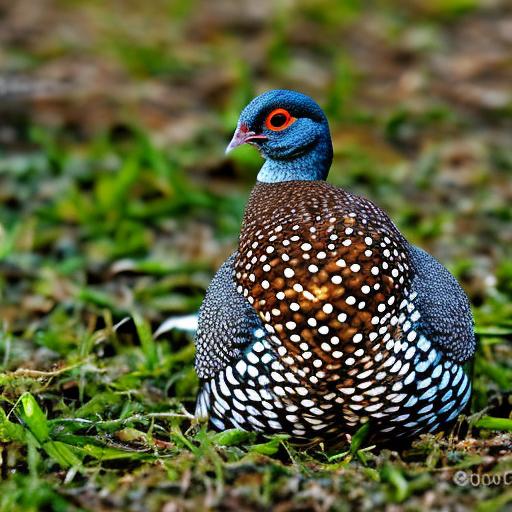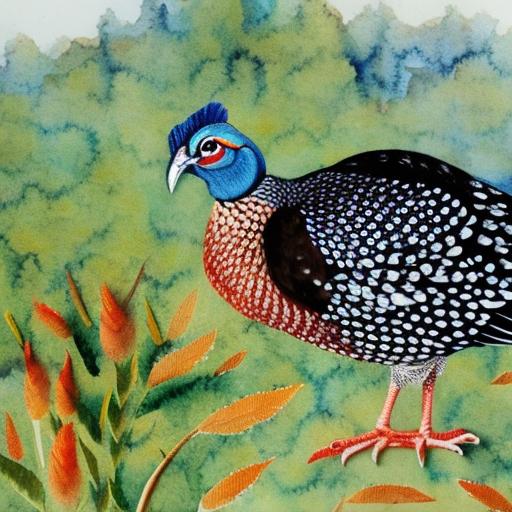Guinea fowl breeding in Australia has gained popularity in recent years due to the increasing demand for their meat and eggs. Guinea fowl are known for their unique flavor and lean meat, making them a popular choice for many consumers. Additionally, their eggs are prized for their rich flavor and high nutritional value. As a result, many farmers and hobbyists are turning to guinea fowl breeding as a way to diversify their poultry operations and capitalize on the growing market demand.
Guinea fowl are also valued for their pest control abilities, as they are natural foragers and consume a wide variety of insects and pests. This makes them a valuable addition to farms and homesteads, as they can help control pest populations without the need for chemical pesticides. With their low maintenance requirements and hardy nature, guinea fowl are well-suited to the Australian climate and are relatively easy to care for, making them an attractive option for both experienced and novice breeders alike.
Key Takeaways
- Guinea fowl breeding is gaining popularity in Australia due to their low maintenance and high-quality meat and eggs.
- When choosing breeding stock, look for healthy, active birds with good body conformation and strong genetics.
- Provide spacious and secure housing for breeding guinea fowl, with access to fresh water, shade, and suitable nesting areas.
- The breeding and incubation process involves natural mating or artificial insemination, followed by a 26-28 day incubation period.
- Care for guinea fowl chicks by providing a warm, draft-free brooding area, high-protein feed, and access to grit and water.
- Regular health checks, vaccination, and proper sanitation are essential for disease management in breeding guinea fowl.
- Selling and marketing guinea fowl offspring can be done through local markets, online platforms, or direct sales to restaurants and specialty stores.
Choosing the Right Breeding Stock
When it comes to guinea fowl breeding, selecting the right breeding stock is crucial to the success of your operation. It’s important to choose healthy, high-quality birds with desirable traits such as good conformation, strong fertility, and good mothering instincts. When selecting breeding stock, it’s important to look for birds that are free from any genetic defects or health issues, as these can be passed on to future generations.
It’s also important to consider the breed and color variety of guinea fowl you want to breed, as different varieties may have different market demands. Whether you’re interested in breeding for meat, eggs, or pest control, choosing the right breed and color variety can make a big difference in the success of your breeding program. Additionally, it’s important to consider the age of the breeding stock, as older birds may have reduced fertility and reproductive capabilities. By carefully selecting your breeding stock, you can ensure that your guinea fowl breeding program is off to a strong start and set up for success.
Housing and Care for Breeding Guinea Fowl
Proper housing and care are essential for the health and well-being of breeding guinea fowl. When it comes to housing, guinea fowl require a secure and predator-proof coop or aviary that provides protection from the elements and ample space for nesting and roosting. The coop should also have good ventilation to prevent moisture buildup and respiratory issues. Additionally, providing access to outdoor space for foraging and exercise is important for the overall health and happiness of the birds.
In terms of care, guinea fowl require a balanced diet that includes a high-quality poultry feed supplemented with fresh greens, insects, and grit. It’s important to provide clean water at all times and regularly clean and maintain the coop to prevent the buildup of waste and parasites. Regular health checks and preventative measures such as vaccinations and parasite control are also important for maintaining the health of breeding guinea fowl. By providing proper housing and care, breeders can ensure that their guinea fowl are healthy and thriving, which is essential for successful breeding.
Breeding and Incubation Process
Breeding guinea fowl typically occurs in the spring and summer months when daylight hours are longer, triggering the birds’ natural breeding instincts. During this time, male guinea fowl will display courtship behavior such as strutting and calling to attract females. Once a pair has formed, mating will occur, and the female will begin laying eggs in a secluded nest site within the coop or aviary.
The incubation period for guinea fowl eggs is approximately 26-28 days, during which time the female will diligently incubate the eggs and care for them. However, some breeders may choose to collect the eggs for artificial incubation to increase hatch rates and control breeding outcomes. When incubating guinea fowl eggs, it’s important to maintain proper temperature and humidity levels, as well as regularly turning the eggs to ensure proper development. By understanding the breeding and incubation process, breeders can effectively manage their guinea fowl breeding program and maximize hatch rates.
Caring for Guinea Fowl Chicks
Once the guinea fowl chicks hatch, they require special care and attention to ensure their health and survival. Chicks should be kept in a warm, draft-free brooder with access to heat lamps or heating pads to maintain proper temperature. It’s important to provide a balanced chick starter feed that is high in protein to support healthy growth and development.
In addition to proper nutrition, chicks should also be monitored for signs of illness or weakness, as they are vulnerable to disease and environmental stressors in their early days. Providing clean bedding, fresh water, and regular cleaning of the brooder are essential for maintaining a healthy environment for the chicks. As they grow, chicks can be gradually introduced to outdoor spaces under supervision to acclimate them to their future environment. By providing attentive care to guinea fowl chicks, breeders can ensure that they grow into healthy adults ready for future breeding.
Health and Disease Management in Breeding Guinea Fowl
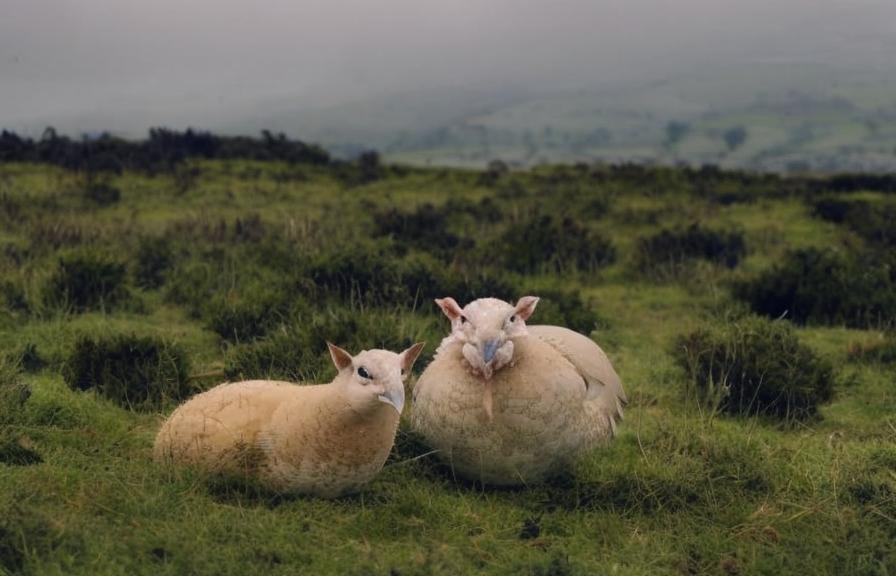
Maintaining the health of breeding guinea fowl is essential for the success of any breeding program. Regular health checks, vaccinations, and parasite control are important preventative measures that can help keep guinea fowl healthy and disease-free. It’s also important to provide a clean living environment with good ventilation and proper waste management to prevent the buildup of bacteria and parasites.
Common health issues in guinea fowl include respiratory infections, parasites such as mites and worms, and nutritional deficiencies. By monitoring the health of the birds closely and addressing any issues promptly, breeders can minimize the risk of disease outbreaks and maintain a healthy breeding flock. Additionally, working with a veterinarian experienced in poultry health can provide valuable guidance on disease management and treatment options. By prioritizing health and disease management, breeders can ensure that their guinea fowl are thriving and productive.
Selling and Marketing Guinea Fowl Offspring
Once guinea fowl offspring reach maturity, breeders have several options for selling and marketing their birds. Whether selling live birds for meat production or hatching eggs for other breeders, it’s important to have a clear marketing strategy in place. Building relationships with local markets, restaurants, and consumers can help create a steady demand for guinea fowl products.
Additionally, participating in poultry shows, farmers’ markets, or online platforms can help reach a wider audience of potential buyers. Highlighting the unique qualities of guinea fowl meat and eggs, such as their flavor and nutritional value, can help differentiate them from other poultry products in the market. By effectively marketing their guinea fowl offspring, breeders can generate income from their breeding program and contribute to the growing demand for guinea fowl products in Australia.
In conclusion, guinea fowl breeding in Australia offers an exciting opportunity for farmers and hobbyists to diversify their poultry operations and capitalize on the growing market demand for guinea fowl meat and eggs. By carefully selecting breeding stock, providing proper housing and care, managing the breeding process effectively, maintaining health and disease management practices, and implementing a strategic marketing plan, breeders can establish a successful guinea fowl breeding program that contributes to the thriving poultry industry in Australia. With its unique flavor, nutritional value, pest control abilities, and low maintenance requirements, guinea fowl breeding presents a promising venture for those looking to enter or expand their presence in the poultry market.
If you’re interested in breeding guinea fowl in Australia, you may also want to check out this informative article on the importance of the floor of a chicken coop. Understanding the best flooring options for your coop can help ensure the health and well-being of your guinea fowl and other poultry. You can read more about it here.
FAQs
What is the breeding season for guinea fowl in Australia?
The breeding season for guinea fowl in Australia typically occurs during the warmer months, from spring to early autumn.
How do guinea fowl breed in Australia?
Guinea fowl in Australia breed by forming monogamous pairs and building nests on the ground. The female lays a clutch of eggs and both parents take turns incubating them.
What are the ideal conditions for breeding guinea fowl in Australia?
Ideal breeding conditions for guinea fowl in Australia include access to a secure and quiet nesting area, a balanced diet, and protection from predators.
How many eggs do guinea fowl lay during the breeding season in Australia?
Guinea fowl in Australia typically lay between 20 to 30 eggs per breeding season, with the female laying one egg every one to two days.
How long does it take for guinea fowl eggs to hatch in Australia?
Guinea fowl eggs in Australia take approximately 26 to 28 days to hatch after incubation begins. Both parents take turns incubating the eggs.
Meet Walter, the feathered-friend fanatic of Florida! Nestled in the sunshine state, Walter struts through life with his feathered companions, clucking his way to happiness. With a coop that’s fancier than a five-star hotel, he’s the Don Juan of the chicken world. When he’s not teaching his hens to do the cha-cha, you’ll find him in a heated debate with his prized rooster, Sir Clucks-a-Lot. Walter’s poultry passion is no yolk; he’s the sunny-side-up guy you never knew you needed in your flock of friends!

